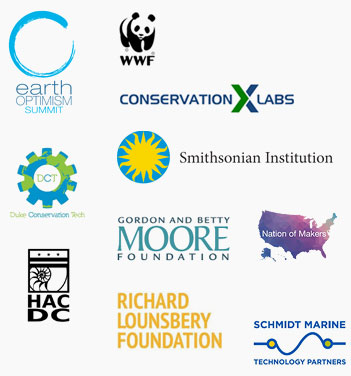Ecosystem Services: The Nature We Need
The Problem
People need nature, but in reality, people need the goods and services that natural ecosystems provide. The value of ecosystems in our life often goes unrecognized and un(der)-valued; the fresh air that we breathe, the clean water that we drink, and the natural beauty that we enjoy are all products of healthy ecosystems. The goods and services produced by natural ecosystems are called ecosystem services. Ecosystem services include benefits like carbon sequestration and storage, freshwater provisioning and flow regulation, sediment reduction and retention, biodiversity, pollination, coastal protection, non-timber forest products for food and medicine, as well as cultural and spiritual values. Ecosystem services are particularly important for vulnerable populations, who may have limited capacity or resources to adapt to a changing environment without those services. To protect these valuable ecosystem services, we need to understand the interaction between the benefits provided by ecosystems, the people who rely on them, and the economic development necessary to improve livelihoods.
You cannot manage what you cannot measure. The challenge here is to develop solutions that will help to deepen the understanding of ecosystems services and how natural ecosystems benefit people. This is the definition of a “wicked problem”; a problem that is difficult or impossible to solve because of incomplete, contradictory, and changing requirements that are often difficult to recognize and measure. The solutions will need to be multi-disciplinary, innovative, and ambitious.
The Challenge
Develop solutions that will measure ecosystem services consistently across large areas, measure the cultural and spiritual value of ecosystems, and connect people with ecosystem services.
Problem Statement
There are a number of possible solutions to connect people with and measure ecosystem services. Consider solutions that tackle the following:
1. Understanding the World & Building Awareness – solutions seek to collect data and measure ecosystem services consistently across large areas; contributing to the body of knowledge on ecosystems services and their interactions with the environment across large spatial scales. Ecosystem services that need accurate measurements across large areas include soil health and carbon content, pollinators and seed disperser, non-timber forest products, or hydrological cycles, especially the interaction of human and natural systems.
2. Valuing the Intangible– solutions seek to quantify or represent the cultural and spiritual value of natural ecosystems; this could include the value of nature to indigenous communities, the value of iconic species and landscape, or value of traditions and traditional knowledge.
3. Changing Behavior- solutions should bring lessons learned from behavior change research to address the problem of ecosystem destruction and the loss of services.
4. Connecting People and Nature – solutions seek to highlight the connections between people and ecosystem service across multiple spatial scales; this could include educational outreach, visualization, gamification, or big data to outline how people and ecosystems interact.
This Challenge was originally pitched by Max Wright of Conservation International as part of the Make for the Planet Competition in April 2017.
Respond to this Challenge!
While the Make for the Planet competition has ended, the conservation problems have not been solved! Your ideas and project proposals are needed to make a difference in conservation.
Share your project on the Digital Makerspace to shape and improve your idea. You’ll benefit from the technical expertise of the Tribe and connect to additional financial and technical resources. We’ll help you navigate the tech development process and identify market opportunities. Through collaboration, we build conservation solutions that are impactful and have the potential to scale.
PART OF
Make For The Planet (M4TP)PROJECTS
Powerful Seeds
A low-cost seed coating platform capable of increasing the efficiency of reforestations around the planet through seed balls for direct sowing.
Buy-In
Moving people out of flood zones frees up space to restore wetlands and riparian zones, but we need better maps to figure out where to invest.
CHALLENGE LEADER
SPONSORS & ORGANIZERS
